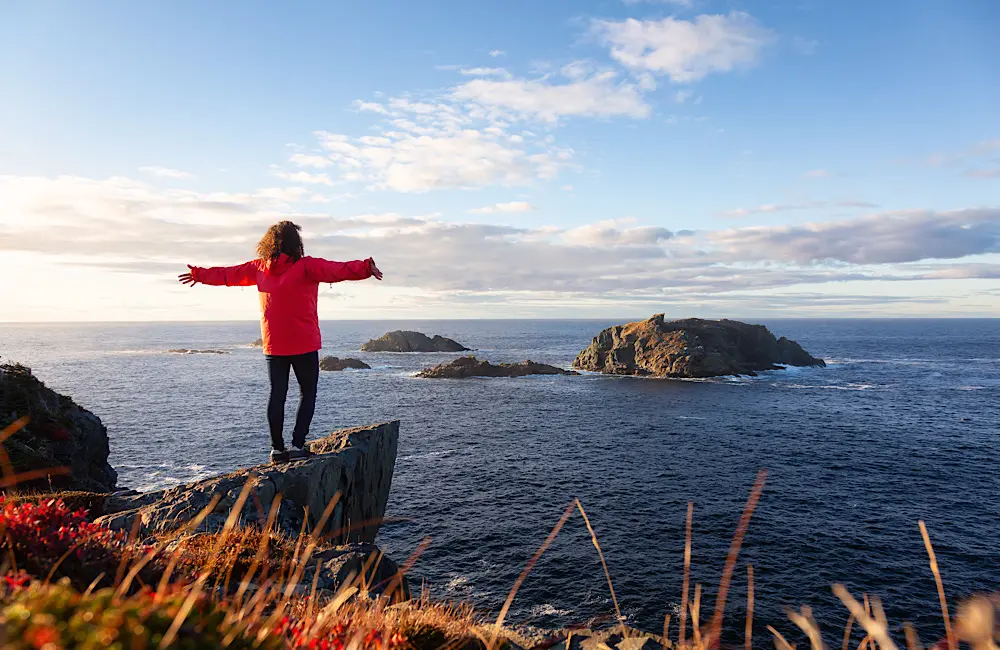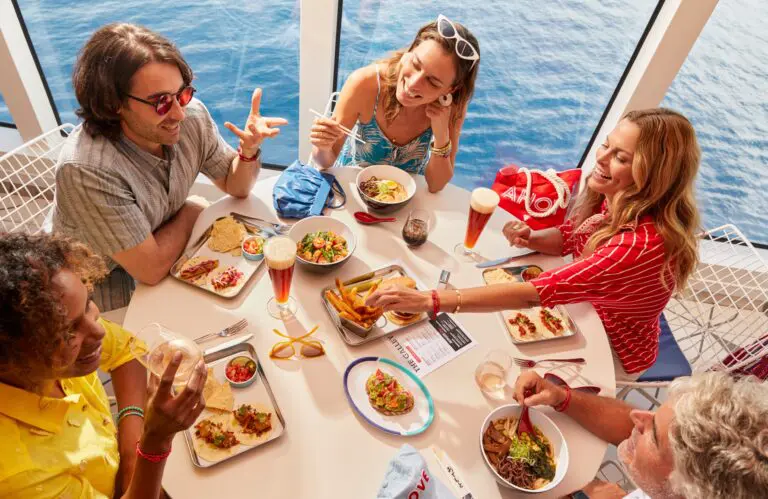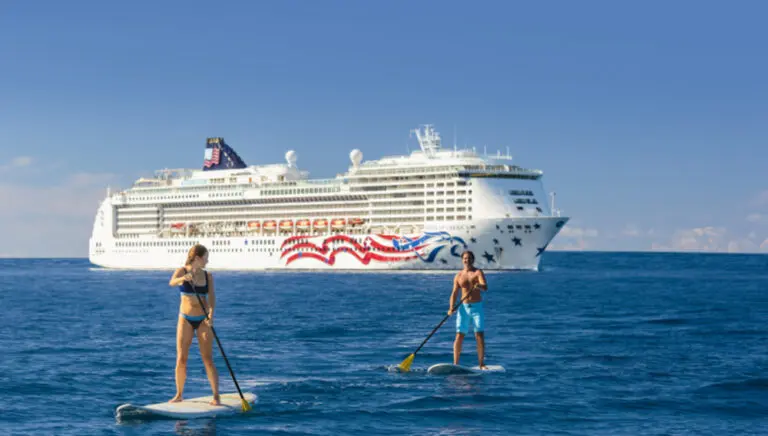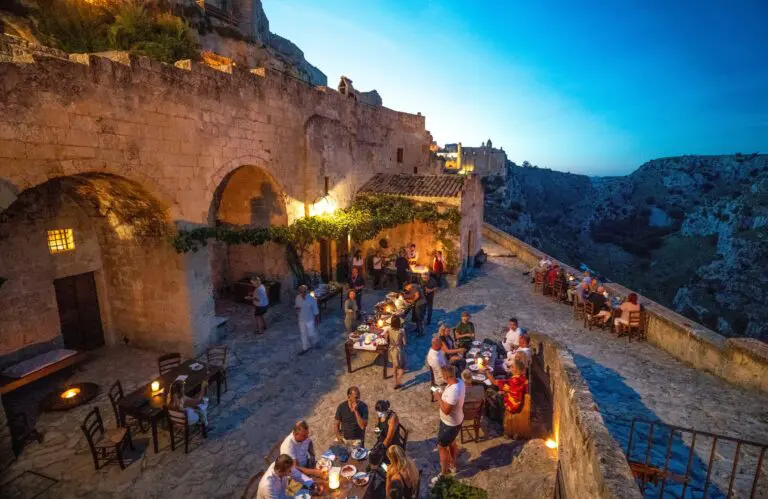You’re a visitor to Newfoundland only once, GAYA AVERY discovers on her first night there. On your return, you’ve no longer ‘come from away’, instead, you’re simply coming home.
“I’ll f———in’ deck you!”
We’d been waiting a little over 20 minutes to deplane before this was shouted, one passenger to another, in Sydney. All because a poor woman needed to exit the loo and squeeze past people already lining up to disembark.
The pandemic, I fear, has made us meaner. Especially, it seems, after long-haul flights.
Two weeks in Canada (and perhaps, more particularly, a week in Newfoundland and Labrador) had made me suddenly sensitive to selfishness, to expect apologies instead of aggression.
For over two terrible pandemic years, we watched as the globalisation experiment came under assault from unexpected borders closing against an enemy we couldn’t see. We were so caught up in the very, very local that most of us didn’t notice what was happening interstate or overseas unless it impacted us. It was like we were suddenly limiting our relationships with other countries and other people in order to keep IT out. But IT can very quickly become THEM.
Travel used to be a conduit through US vs THEM. It was a means of practicing empathy. It was through travel, away from our at-home routines, that we could live, even for a short time, another way, with other people. And then travel just stopped. And the world became the worse for it.
When the US closed its airspace soon after the attacks of 9/11, some 7,000 people were stuck waiting in 38 planes rerouted and parked in the airport of the little town of Gander, Newfoundland, for upwards of twenty hours. Many of those on the planes were unaware of the fall of the Twin Towers or the Pentagon, or the selfless people of Flight 93.

If you’ve already seen the award-winning musical ‘Come From Away’, you’ll know where this is going. If not, prepare yourself for a story, a people and a setting that will remind you that there is real kindness out there. And icebergs too.
In the days following 9/11, the population of Gander grew by almost 7,000. Over the course of five days, those scared, tired ‘plane people’ from over 95 different countries were housed and fed, entertained and cared for by locals. “They became family,” we’re simply told by those who took them in.
Allowing complete strangers to sleep in your homes and to borrow your cars is not a normal ask. Doing so, when one of those people could be a terrorist, when, let’s face it, the planes were sent to a place with no high rises and a small population just in case, is almost incomprehensible.
But when I asked the locals how it felt to be considered expendable, they told me they simply were too busy caring for the plane people to really notice.
We’re sitting around the dining table of Derm and Dianne Flynn (both of whom are represented in the ‘Come From Away’ musical), wiping away crumbs from Dianne’s moreish homemade bakeapple and blueberry tarts. Derm, the then mayor of Appleton, a little town just outside of Gander, doesn’t so much shrug off praise for the actions of his community as he does suggest that anyone would and should do the same.
“What we did in 9/11 is really nothing compared to what other countries are doing now with the displaced Ukrainians fleeing the war,” he says.
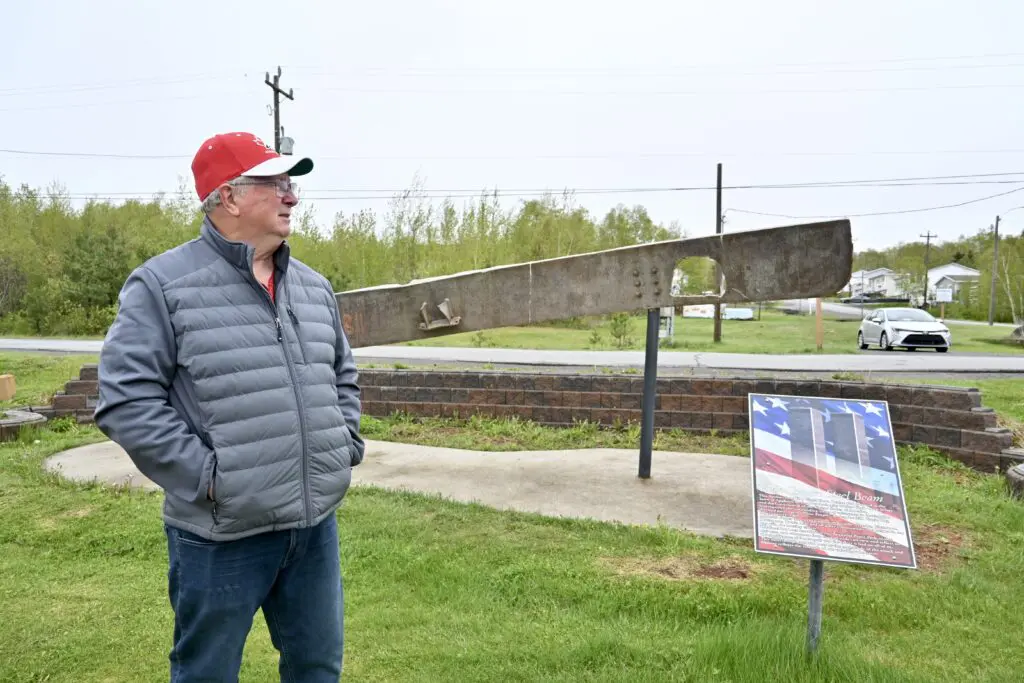
There are so many truly incredible stories about what the people of Newfoundland did in the days following 9/11 (a 14 foot long cake for a birthday party for 350 people? Done!), but to Derm and Dianne it was just what you do.
“Our people were all doing the same thing,” Derm says. “Nobody told them what to do, they just did what they thought was right when a stranger comes to your house, when a stranger comes to your town: welcome them as best you can.”
“It didn’t matter what colour you were. Everybody was treated the same. And everybody all of a sudden realised: in this whole big world, we’re all one.”
How to become an honorary Newfoundlander
When you come to Newfoundland the first time, the locals will say you’ve come from away. But sometime during your stay, you may wander into a pub, or inevitably make friends with a local, and then before you’re know it, you’re kissing a cod and have been formally ‘screeched in’ (it’s a whole kind of secret process that I thoroughly recommend).
In the warmth of Derm’s and Dianne’s house, the pair gleefully screech in a newcomer while we watch on with the kind of satisfaction that only comes from having already gone through it.
I was lucky enough to be screeched in by Brian Mosher, Oz Fudge and Beulah Cooper (also all represented in the musical) on my first night in a little RSL-like club called the Legion in Gander. It was a raucous affair that ended with most of us in tears (of laughter) having been taught how to talk and eat like a Newfoundlander.
It’s been almost 21 years since 9/11, I say to Brian later. And ‘Come From Away’ is opening on the Gold Coast this month, returning to Melbourne the next and Sydney in November. Places so far away from both Gander and New York City. Why is the story still relevant?
“Even 21 years later, ‘Come From Away’ is the ultimate feel good story that reaffirms for all of us that there truly are good people in the world,” he says. “People who will give every ounce of energy and whatever they can share to help another human being.”
“It’s the backbone of Newfoundland but the story that the world wants and needs to hear.
“Truly, it’s the Newfoundland way that’s part of our being. Even in times when we are shown the worst of humanity, we are able to show the best of humanity. It’s why I’m so proud to call this place home.”
I’ll kiss a cod for that any day.
Icebergs, puffins and all the pretty places in between
There’s an icy corridor that runs from Greenland to the southeast coast of the island of Newfoundland. It’s been dubbed Iceberg Alley and the picturesque town of Twillingate, just 1.5 hour’s drive from Gander, is known as the Iceberg Capital of the World.
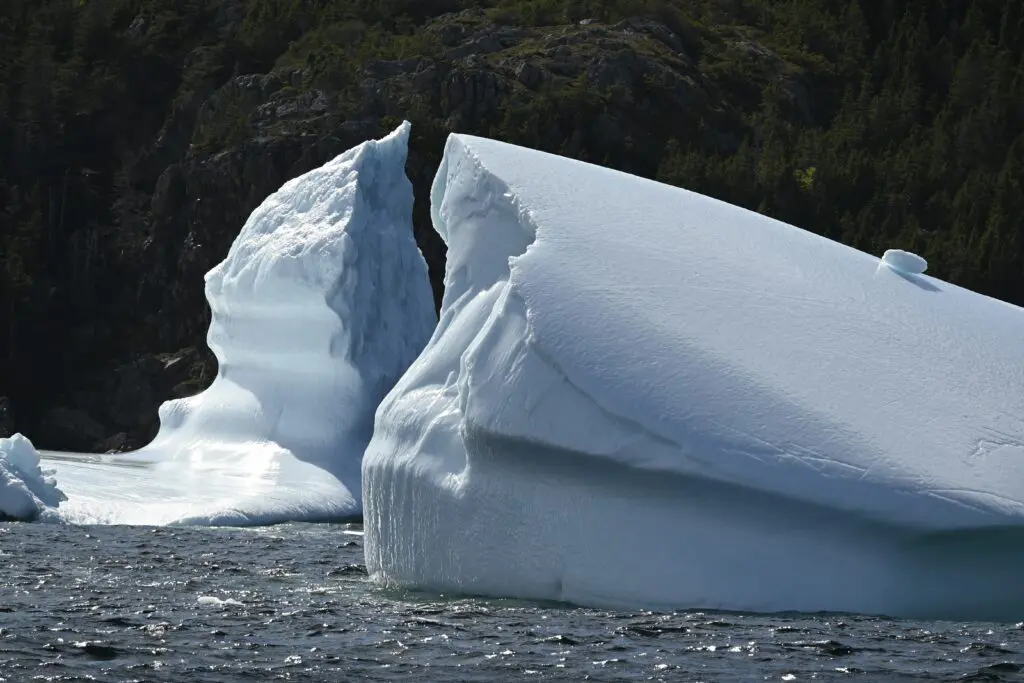
These ancient leviathans originate from the glaciers of western Greenland and make their journey south. In fact, it was likely one of these icebergs that struck the Titanic, some 600 kilometres from the shores of Newfoundland.
The best time of year to see the icebergs is from mid-May to mid-July. The day before our arrival and boat journey out to search for it, an iceberg has been spotted (there’s an app for that) and our captain was there to see it calve in a dramatic show.
We see two icebergs in two days and manage to nab a ‘bergy bit’ before hitting up Auk Island Winery to try local berry wines made with pure iceberg water (at this point we are already well-versed in the Quidi Vidi iceberg beer).
There are whales too, some 22 species of them. And puffins, improbability after improbability of them (that’s what a group of puffins is called). Elliston’s Puffin Viewing site offers the closest view of puffins from the land in all of North America. It is also the Root Cellar Capital of the World, and if you’re there in September, Elliston hosts the hiking-inspired food festival Roots, Rants and Roars.
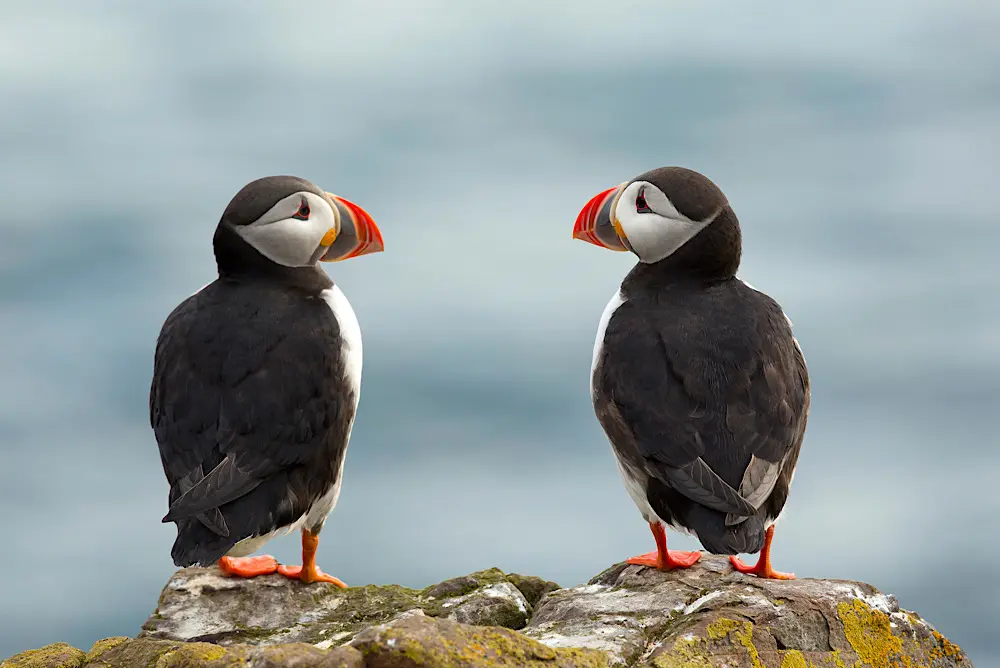
I came to Newfoundland for the icebergs and the puffins, but in the colourful town of Trinity, still jet-lagged and up before sunrise, I wander along the water’s edge and remember the old cliche of people being like icebergs and how we only see what’s on the surface.
Back in Sydney, it turns out the woman who shouted profanities as we waited to deplane had missed her connection and was travelling with her elderly parents. The person she was shouting at had also missed her connection, was also travelling with her elderly parents.
I silently wished them both a trip to Newfoundland. Because as the pandemic does its best to divide us, now more than ever the whole world needs to be screeched in, to learn how to talk like a Newfoundlander, where everyone’s my darlin’ and kindness first is the best shot for humanity.
Newfoundland and Labrador is the most easterly province in Canada—where the sun rises first; where Vikings landed over 1,000 years ago. This place is home to the oldest European settlement and one of the oldest cities in North America, but has been a province of Canada for barely 65 years. A vast land, with a relatively small population, Newfoundland and Labrador has some of the friendliest people you’ll ever meet. Here, you can experience a solitary wilderness one day and immerse yourself in a vibrant culture the next. This is a land of rich history and natural wonders: stunning coastlines, breaching whales, icebergs, and some of the most incredible skyscapes you’ll ever see.
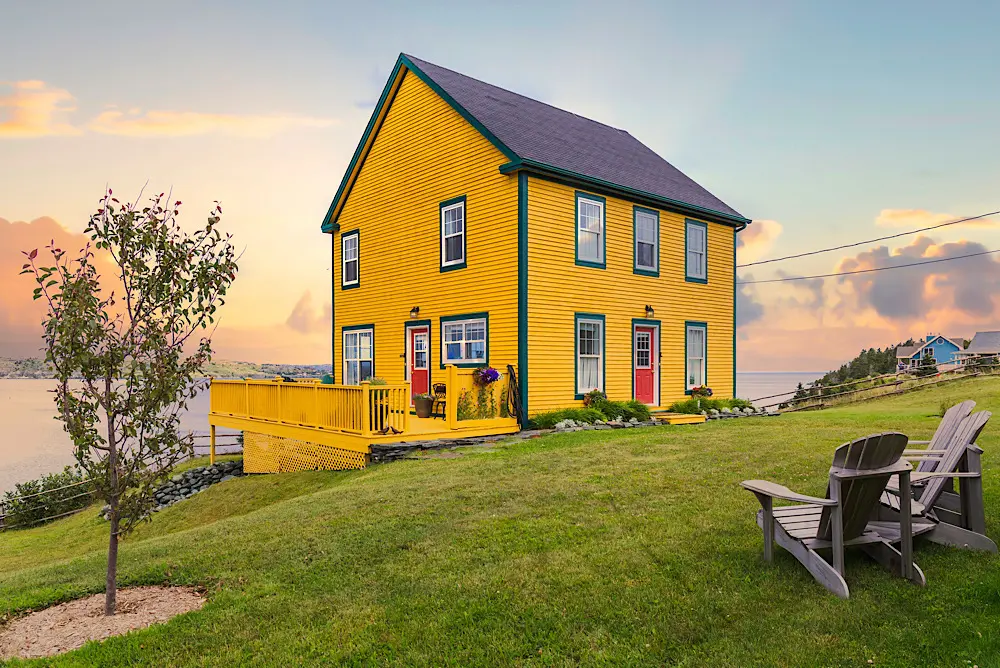
The author of this article travelled as a guest of Newfoundland and Labrador Tourism; however, the tourism board did not review or approve the content before publishing.

